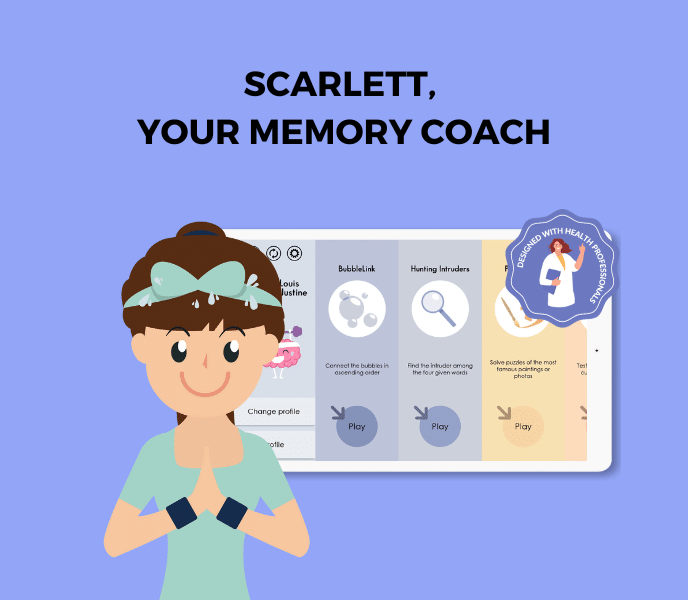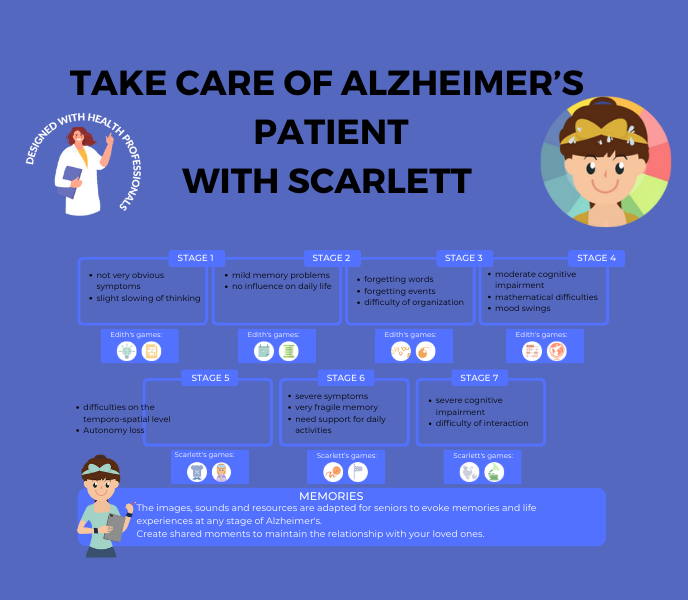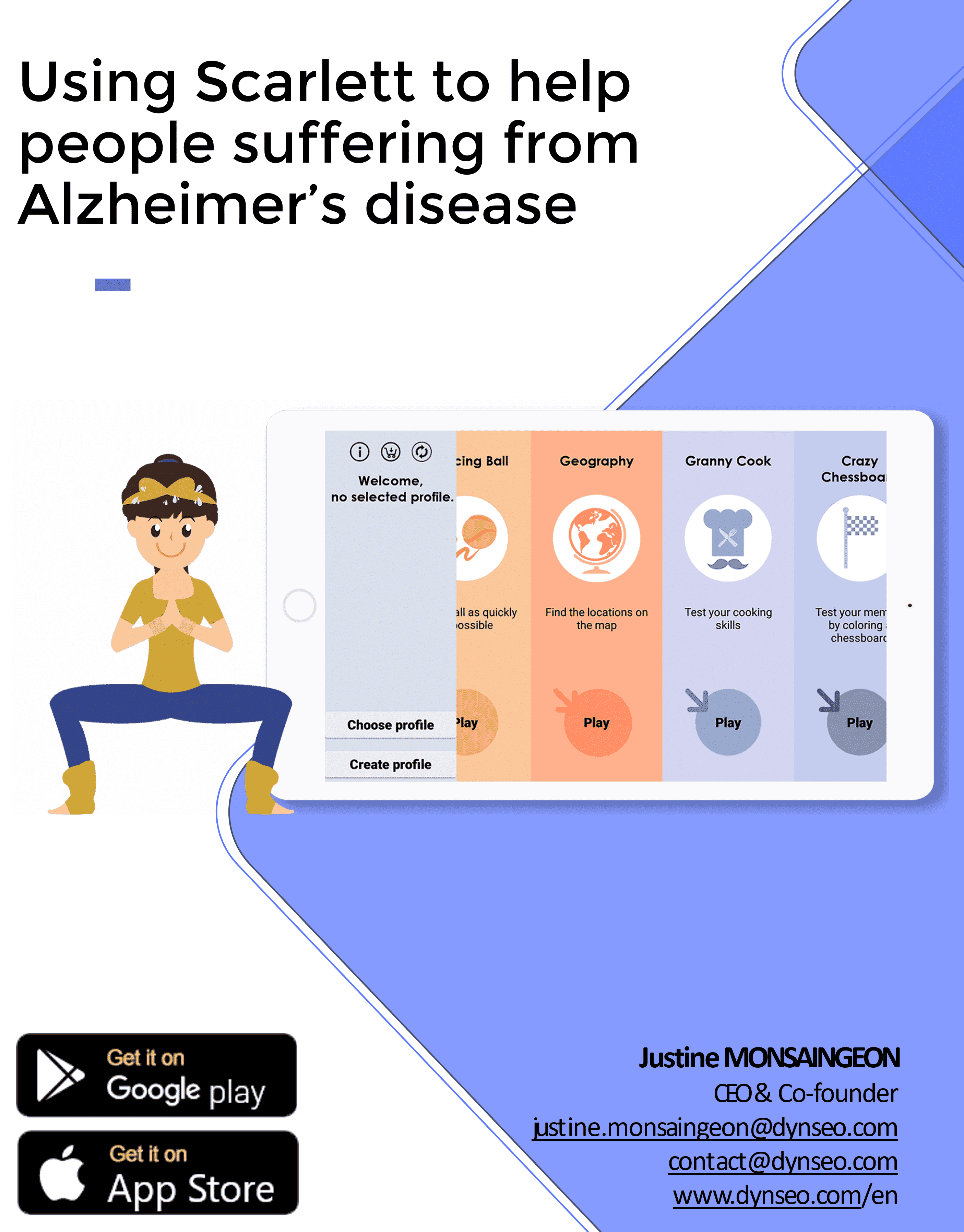Alzheimer’s Disease, a progressive neurological disorder, presents a significant challenge in the realm of healthcare, affecting millions worldwide. As cognitive functions decline, individuals experience memory loss, impaired reasoning, and a decline in overall quality of life. Amidst this sobering reality, research suggests a glimmer of hope through the implementation of adapted games. These games, tailored to accommodate the cognitive limitations of Alzheimer’s patients, offer a unique avenue for therapeutic intervention.
By engaging individuals in mentally stimulating activities, such as puzzles or memory games, adapted games hold promise in potentially slowing the progression of Alzheimer’s Disease. However, the efficacy of these interventions warrants thorough examination and analysis. This paper aims to delve into the latest research surrounding the impact of adapted games on Alzheimer’s progression, shedding light on their potential role in enhancing cognitive function and improving the lives of those affected by this debilitating condition.
Understanding Alzheimer’s Disease
Alzheimer’s Disease is characterized by the accumulation of amyloid plaques and neurofibrillary tangles in the brain, leading to progressive neuronal dysfunction and cognitive decline. Pathologically, it involves the degeneration of brain cells, particularly in areas responsible for memory and cognitive function. Symptoms typically manifest as mild forgetfulness and confusion, gradually worsening over time to include profound memory loss, disorientation, and difficulty with everyday tasks.
Current treatment approaches primarily focus on managing symptoms through medication such as cholinesterase inhibitors and memantine, aimed at temporarily alleviating cognitive impairment. However, these treatments do not halt the progression of the disease, underscoring the urgent need for novel therapeutic strategies targeting the underlying mechanisms of Alzheimer’s pathology.
Role of Cognitive Stimulation
Cognitive stimulation plays a pivotal role in maintaining brain health and functionality, particularly in the context of Alzheimer’s Disease. Engaging in cognitive activities stimulates neural pathways, promotes neuroplasticity, and enhances overall brain function. For individuals with Alzheimer’s, participating in cognitive stimulation activities can potentially slow cognitive decline and improve quality of life. Regular engagement in mentally stimulating tasks, such as puzzles, games, and social interactions, has been shown to bolster cognitive reserve and delay the onset of symptoms.
Moreover, cognitive stimulation can mitigate the impact of neurodegeneration by fostering the development of alternative neural networks and compensatory mechanisms. As such, incorporating structured cognitive stimulation programs into Alzheimer’s care regimens holds promise in preserving cognitive function and enhancing overall well-being for affected individuals.
Adapted Games: Definition and Types
Definition of Adapted Games
Adapted games refer to recreational activities specifically modified or tailored to accommodate the cognitive, physical, or sensory limitations of individuals with various disabilities or conditions. These games are designed to be accessible and inclusive, ensuring that all participants can engage and benefit from the experience. Adapted games may involve adjustments to rules, equipment, or playing environment to suit the needs of participants, promoting equal participation and enjoyment for everyone involved.
Whether it’s adapting board games for individuals with limited dexterity or simplifying instructions for those with cognitive impairments, the essence of adapted games lies in their ability to provide meaningful recreational opportunities to individuals of all abilities.
Different Types of Adapted Games
Adapted games encompass a diverse array of recreational activities spanning various genres and formats. Some common types of adapted games include modified sports, board games, card games, and digital games. Modified sports such as wheelchair basketball or seated volleyball cater to individuals with physical disabilities, offering modified rules and equipment to facilitate participation. Board games and card games can be adapted by using larger pieces, simplified rules, or tactile elements to accommodate individuals with cognitive or sensory impairments. Digital games can also be modified with customizable settings, adjustable difficulty levels, and accessible interfaces to cater to diverse needs and preferences. The versatility of adapted games ensures that there are options available for individuals with a wide range of abilities and interests.
Examples and Features
The landscape of adapted games is rich and varied, offering a multitude of options designed to cater to the unique needs and preferences of individuals with disabilities or cognitive impairments. These adaptations ensure that games, which form a crucial part of leisure and learning activities, are accessible to all, promoting inclusivity and enhancing quality of life. Here are more detailed examples and features of adapted games across different categories:
Board Games
- Scrabble: Adaptations may include larger tiles with braille or high-contrast letters for individuals with visual impairments. A tactile board with raised grid lines helps players feel the spaces and place their tiles more easily.
- Monopoly: Features larger, easy-to-grab pieces and properties with different textures or shapes. Money denominations can be color-coded or varied in size for easier differentiation.
Card Games
- Uno: Adapted versions might use oversized cards with large print and vibrant colors to aid those with visual challenges. Simplified rules can help players with cognitive impairments stay engaged without becoming overwhelmed.
- Go Fish: Could include cards with tactile indicators for different suits or numbers, allowing players who are blind or have low vision to participate fully.
Digital Games
- Minecraft: Offers customizable settings to adjust game speed, difficulty, and controls. Accessibility features like screen readers, subtitles, and a high-contrast visual mode make the game more accessible to players with sensory impairments.
- Words With Friends: This game can be adapted through the use of text-to-speech for chat functions and customizable interfaces, allowing players with various disabilities to enjoy competitive wordplay with friends.
Memory Games for Seniors
- Adapted Memory Games: Often feature large, easily identifiable images on cards that are comfortable to hold. The game rules are flexible, allowing for modifications based on the cognitive abilities of the players. Memory games for seniors might also incorporate themes or items familiar to the players, enhancing their engagement and recall abilities.
Features Common to Adapted Games
- Clear and Concise Instructions: Essential for players with cognitive impairments to understand and enjoy the game without frustration.
- Flexible Rules: Allow for customization based on the player’s abilities, ensuring the game remains challenging but achievable.
- Inclusive Design: Prioritizes accessibility, with features such as adjustable text sizes, contrast settings, and alternative input methods for players with physical impairments.
These adapted games exemplify the innovative approaches taken to ensure recreational activities are inclusive, allowing individuals with various disabilities or cognitive challenges to experience the joy and social interaction that gaming brings. By focusing on accessibility and adaptability, these games not only provide entertainment but also offer therapeutic benefits, including cognitive stimulation, improved motor skills, and enhanced social connections.
Research Studies on Adapted Games
Research studies examining the impact of adapted games offer a comprehensive overview of their potential benefits, particularly concerning Alzheimer’s Disease. Existing literature showcases a diverse range of findings indicating the positive effects of adapted games on cognitive function, social engagement, and overall well-being among Alzheimer’s patients.
These studies often employ mixed-method approaches, including quantitative assessments of cognitive abilities and qualitative analyses of participant experiences. While many demonstrate significant improvements in cognitive function and quality of life, methodological approaches vary, leading to challenges in synthesizing results. Limitations such as small sample sizes, short intervention durations, and variability in game types hinder the generalizability of findings. Despite these challenges, the collective body of research underscores the potential of adapted games as a promising adjunctive therapy in mitigating the progression of Alzheimer’s Disease and enhancing the lives of affected individuals.
Mechanisms Behind Adapted Games
Adapted games exert their beneficial effects through multifaceted mechanisms that encompass cognitive engagement, emotional and social aspects, and neuroplasticity. Firstly, cognitive engagement in adapted games involves stimulating various cognitive functions such as memory, attention, and problem-solving skills. By challenging individuals with tasks tailored to their abilities, adapted games promote cognitive stimulation, which may help preserve cognitive function over time. Secondly, these games foster emotional and social well-being by providing opportunities for positive social interactions and emotional expression. Engaging in cooperative or competitive gameplay can enhance mood, reduce feelings of loneliness, and promote a sense of belonging within a supportive community.
Lastly, adapted games contribute to neuroplasticity and brain resilience by encouraging the formation of new neural connections and promoting adaptive changes in brain structure and function. Through repeated engagement, individuals can strengthen neural pathways, enhance cognitive reserve, and potentially mitigate the impact of neurodegenerative processes associated with conditions such as Alzheimer’s Disease. Overall, the mechanisms underlying adapted games highlight their potential to support cognitive, emotional, and neurological health across diverse populations.
Challenges and Considerations
Challenges and considerations surrounding the implementation of adapted games encompass various factors that influence their efficacy and accessibility. Accessibility issues, including physical barriers and technological limitations, pose significant challenges for individuals with disabilities or limited access to resources. Ensuring that adapted games are inclusive and accessible to all participants requires careful consideration of factors such as mobility, sensory impairments, and language barriers. Moreover, adherence and motivation present ongoing challenges, as maintaining engagement with adapted games may require sustained effort and encouragement.
Strategies to enhance adherence may include incorporating rewards, providing ongoing support and feedback, and fostering a sense of community among participants. Additionally, integrating adapted games into treatment plans necessitates collaboration among healthcare professionals, educators, and caregivers to ensure alignment with therapeutic goals and individualized needs. Addressing these challenges and considerations is essential for maximizing the potential benefits of adapted games in promoting cognitive, emotional, and social well-being across diverse populations.
Future Directions and Implications
AND FOR FURTHER INFORMATION

SCARLETT, YOUR MEMORY COACH FOR ALZHEIMER’S
The SCARLETT play program has been specially designed with healthcare professionals for use with Alzheimer’s patients. Non-checking games adapted to their level and prior knowledge. The aim is to focus on the pleasure of playing.
Other articles that might interest you:
The Role of Cognitive Apps in Speech Therapy for Alzheimer’s Patients
Alzheimer’s disease is a progressive neurological disorder that primarily affects memory, thinking, and behavior. As...
Memory Apps for Alzheimer’s: Enhancing Recall in Speech Therapy Sessions
Alzheimer's disease is a progressive neurological disorder that primarily affects memory, thinking, and behavior. As...
Cognitive Rehabilitation Apps for Speech Therapy with Alzheimer’s Patients
In recent years, the landscape of cognitive rehabilitation has evolved significantly, largely due to the advent of...







